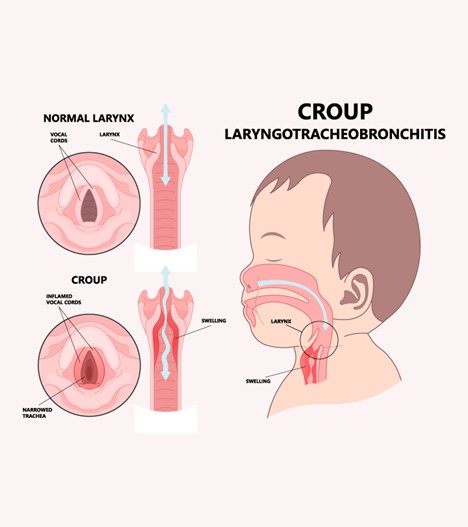When palpating the child's cervical lymph nodes, the nurse notes that they are tender, enlarged, and warm. The best explanation for this is:.
Infection or inflammation close to the site.
Some form of cancer.
Local scalp infection common in children.
Infection or inflammation distal to the site.
The Correct Answer is A
The correct answer is choice A. Infection or inflammation close to the site.
Choice A rationale:
Tender, enlarged, and warm lymph nodes are indicative of infection or inflammation in the nearby area. Lymph nodes are part of the immune system and can become enlarged and tender when fighting off infections in their drainage area.
Choice B rationale:
While cancer can cause lymph node enlargement, it is less likely in children, and the question doesn't provide any other context to suggest cancer as the primary explanation.
Choice C rationale:
Local scalp infection might cause enlargement of the lymph nodes in the neck, but it would not be the best explanation for tender, enlarged, and warm cervical lymph nodes. Infections or inflammation close to the site of lymph node involvement are more likely.
Choice D rationale:
Infection or inflammation distal to the site wouldn't directly explain the tenderness, warmth, and enlargement of the cervical lymph nodes. Lymph nodes generally react to infections or inflammation in their drainage area.
Nursing Test Bank
Naxlex Comprehensive Predictor Exams
Related Questions
Correct Answer is B
Explanation
The correct answer is choice B. Cardiac valve damage.
Choice A rationale:
Pulmonary hypertension is not a common complication of rheumatic fever. Rheumatic fever primarily affects the heart, joints, skin, and brain, and pulmonary hypertension is not a typical manifestation of this condition.
Choice B rationale:
Cardiac valve damage is a common and serious complication of rheumatic fever. Rheumatic fever is caused by an autoimmune reaction to untreated streptococcal infections, particularly Streptococcus pyogenes. The immune response targets not only the streptococcal bacteria but also the body's own tissues, especially heart valves. This can lead to inflammation of the heart valves, a condition known as rheumatic heart disease. Over time, repeated bouts of rheumatic fever can result in significant damage to the heart valves, leading to valve insufficiency or stenosis. This can ultimately cause heart failure and other cardiovascular complications.
Choice C rationale:
Seizures are not a common complication of rheumatic fever. Rheumatic fever primarily affects the heart and other body systems, but it does not typically lead to seizures.
Choice D rationale:
Cardiac arrhythmias are possible complications of rheumatic fever, but they are not as common or significant as cardiac valve damage. The inflammation and scarring caused by rheumatic fever can disrupt the electrical pathways of the heart, potentially leading to arrhythmias. However, the more prevalent and severe consequence of rheumatic fever is the damage to the heart valves.
Correct Answer is B
Explanation
The correct answer is choice B. It has a harsh, barky cough.
Choice A rationale:
Spasmodic croup is characterized by sudden-onset symptoms, including a barking cough, but it is not typically associated with a high fever. The barky cough is caused by inflammation and narrowing of the upper airways, leading to a distinct sound when the child coughs.
Choice B rationale:
A harsh, barky cough is a hallmark symptom of spasmodic croup. It is caused by the swelling of the vocal cords and the upper airway, resulting in the characteristic sound. This type of croup is often triggered by viral infections and is usually not bacterial in nature.
Choice C rationale:
Spasmodic croup is usually of viral origin rather than bacterial. Bacterial infections may lead to other respiratory conditions, but they are not a distinguishing feature of spasmodic croup.

Choice D rationale:
Wheezing is not a typical manifestation of spasmodic croup. Wheezing is often associated with lower airway conditions such as asthma, while croup primarily affects the upper airways and vocal cords, leading to the barking cough.
Whether you are a student looking to ace your exams or a practicing nurse seeking to enhance your expertise , our nursing education contents will empower you with the confidence and competence to make a difference in the lives of patients and become a respected leader in the healthcare field.
Visit Naxlex, invest in your future and unlock endless possibilities with our unparalleled nursing education contents today
Report Wrong Answer on the Current Question
Do you disagree with the answer? If yes, what is your expected answer? Explain.
Kindly be descriptive with the issue you are facing.
